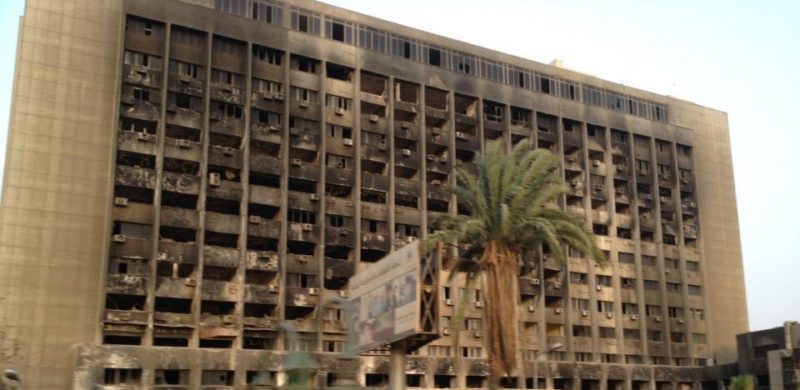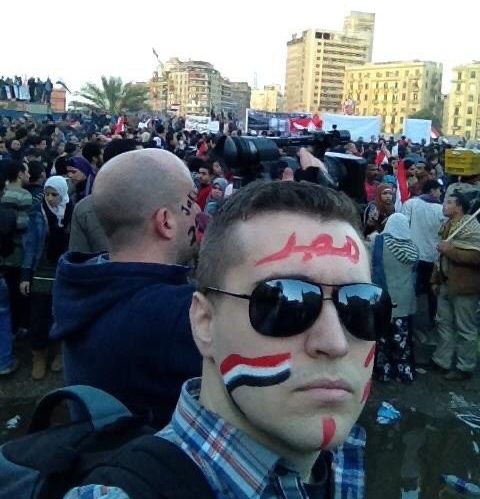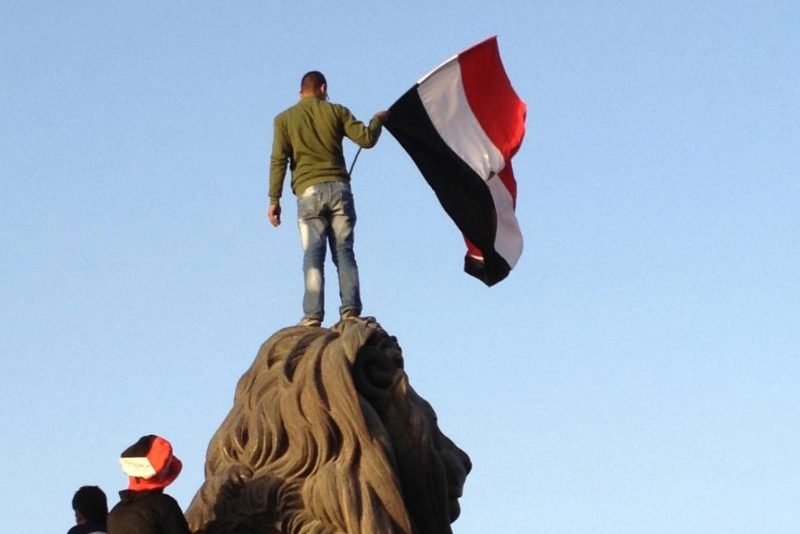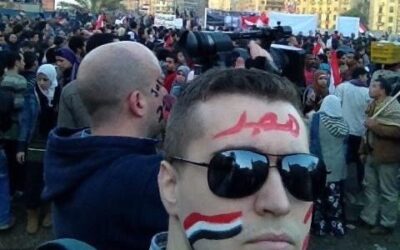
When I was in Egypt in early January of 2011, only a few weeks before the outbreak of the Egyptian Revolution, everything seemed perfectly normal. The government seemed as stable as it had been for the past 30 years and there was zero indication that a revolution was about to happen.
But just about two weeks after I left Egypt on that trip, a few protests started growing into bigger and bigger gatherings and demonstrations. Then thousands of people turned into hundreds of thousands, then over two million people out in the streets calling for the overthrow of the dictatorship.
And then – boom! Seventeen days later, Hosni Mubarak, Egypt’s super super entrenched ruler of 30 years, was gone.
Even after the outbreak of the protests and demonstrations in Egypt on January 25th, 2011, I never thought the outcome would be the Egyptian people ousting their long-time dictator. I mean, that just did not happen. His control over the country was just too strong and too long for anyone to even fathom that happening.
But, by God, Egyptians were just not going to let a flimsy announcement of reforms or a reshuffling of their cabinet suffice this time. They were just not going to let up despite the incredible heavy-handedness and brutality of the security forces, and it was truly historic and remarkable to witness.
What was really interesting about Egypt’s Arab Spring revolution was the difference between the domestic security forces like the national police on the one hand, and the Egyptian Army on the other. The Army didn’t really participate in trying to suppress demonstrators. It was the interior ministry and their police and state security service that were out there shooting and beating protesters during the revolution. The Army largely stayed out of the chaos, other than to guard important government and public buildings, and only finally stepped in to begin protecting the Egyptian people from the security services and eventually organizing the ousting and imprisonment of Mubarak himself.

People thought it was so unsafe there during the revolution and the ensuing times, but honestly there was only a brief period of a few weeks when anarchy broke out after the collapse of the government and its security services. After that short period, the Egyptian people stepped up to do a remarkable job at community policing until the new government organized a new security establishment.
But that was really only in central Cairo. The capital’s sprawling suburbs and the rest of the country remained relatively normal, unlike the scenes shown on international television.
You also had all these naive journalists parachuting into Egypt and diving right into the middle of places that didn’t have law enforcement re-established at the time, and they were really unfairly – and unethically – portraying that as all of Egypt and even all of Cairo when in fact it was mostly just the very center of once city. Then they kept playing stock footage of that period over and over for two years as if it was still going on, grossly distorting the world’s image of everyday life in 99% of Egypt even during political turmoil.
I remember being back in Egypt well after the initial anarchy in the center of Cairo had passed and order had been restored but the revolution was still going on, and I could literally turn on networks like CNN on the TV in my hotel room and see scenes of rioting and burning and fighting in the streets of central Cairo. But I could look out of my window at that same moment, looking at the exact same square or intersection, and it was just a normal scene of cars and pedestrians going by, people buying food and going to work, vendors selling things on the street, and Egypt just being back to normal.
That’s when I really lost faith in the Western media’s coverage of the Middle East. They were so quick to parachute in irresponsibly and even get themselves into dicey situations irresponsibly, and their advertising-driven sensationalist coverage would destroy the Egyptian economy for months and even years with their looped stock footage of times and scenes long past. Then they would utterly fail in their responsibility to report on the quick end of these temporary situations, on the restoration of order, and on the return to normalcy in places like Egypt.
Now don’t get me wrong. I’m not saying bad stuff didn’t happen. During the height of the upheaval I found myself in situations where I wasright in front of vehicles being set on fire, and I had tear gas fill a restaurant where I was trying to enjoy some Italian food one night because the windows were open to let in the evening Nile breeze and some clashes with police broke out right in front of the restaurant.
But I’ve also literally walked out into the middle of crowds that international media had said were crazy fanatical rioting mobs, and I had many participants in those demonstrations come up to me immediately and ask if they could escort me to wherever I was going by walking through the crowds. This even happened with the later demonstrations of the Sallifis in Egypt, which were like the super crazy religious fundamentalists.

They used to say that the Muslim Brotherhood in Egypt wanted to take the country back to the 1600s, but the Salifis wanted to take it back to the 600s. The implication, of course, was that these were crazy, foreigner-hating reactionaries that were taking over and making Cairo a dangerous place to be. However, when I would need to walk through an area where the Salifis were having a demonstration, as soon as they realized I was foreign from my look they would immediately ask if they could help me get wherever I was trying to go, and they were always kind, helpful, and respectful towards me.
Now that may have been different had I come across as a local that didn’t fit in there, but the important point to take away from this is that the different competing political factions within Egypt largely only harbor animosity towards each other sometimes, not towards foreigners. And that point always gets ignored in Western media because it doesn’t sell ads or drive clicks.
Reality in places like Egypt is often too nuanced for Western media to bother with and cover accurately, so you really have to rely on independent media and personal accounts of reality during times and events like these in the Middle East. That’s why I’ve endeavored here to offer a small dose of it here based on my own personal experience in Egypt during the Arab Spring period.





